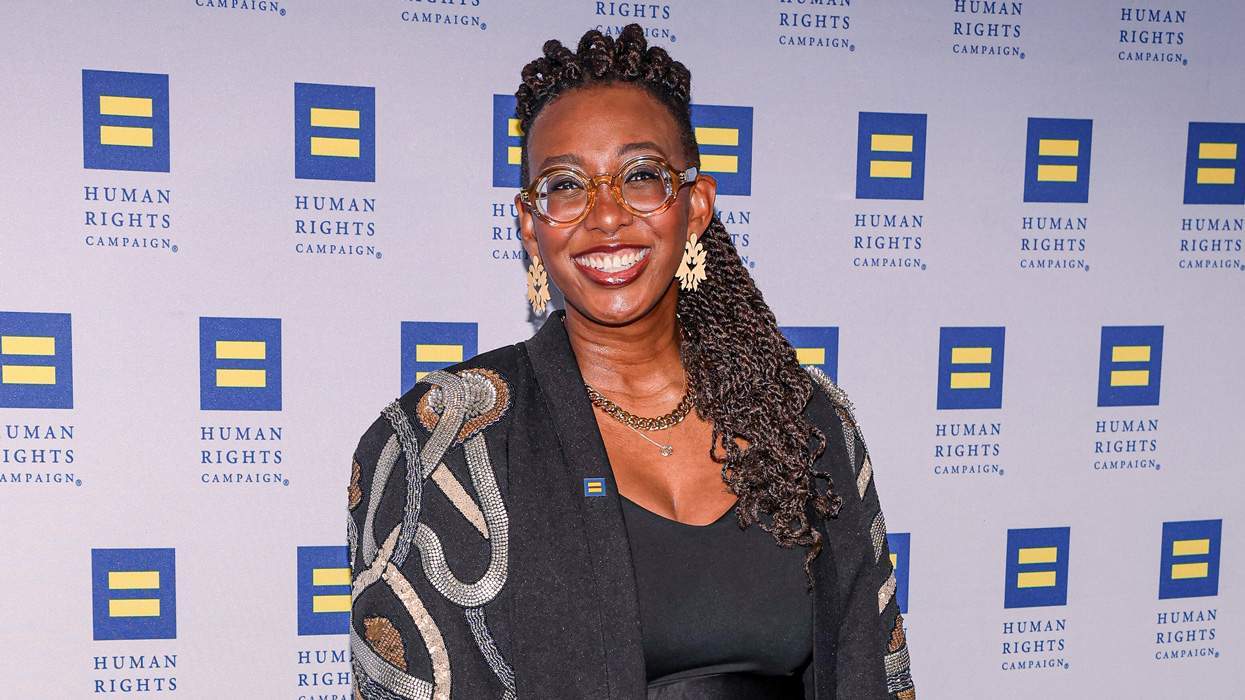Germans are more tolerant of the LGBTQ community than they are of the Muslim population, according to a new survey published Thursday by German Playboy and reported in Deutsche Welle.
Of the more than 1,000 German men and women surveyed, 70 percent said they do not care if their child is gay and would support legislation that required insurance companies to pay for transition-related surgery for transgender people.
However, over 70 percent would also support banning teachers and public servants from wearing hijabs, and 55.7 percent said they would be bothered by the presence of a mosque in their neighborhoods. This is greater than the reported discomfort for houses of worship for other faiths -- 25 percent said they would be uncomfortable with Jewish and Buddhist temples, and only 16 percent said they would be uncomfortable with Christian churches.
Dr. Melanie Steffens, social psychology professor at the University of Koblenz, told Deutsche Welle that visibility and legal protections play a key role in which minority populations receive social acceptance.
"Some of the many factors playing a role here are of course that coming out is voluntary, that the LGBT community has somewhat more control over how much of their identity people see... and also that laws create norms -- so for example, when you legalize gay marriage, that goes a long way for creating acceptance," Steffens said.
The last two years saw quite a few strides made for the LGBTQ community in Germany. In March 2017, Germany repealed a historic anti-sodomy law known as "Article 175" and annulled convictions for gay men prosecuted under the law. Germany established marriage equality in 2017; the legislation first passing through the Bundestag in June, and then through the Bundesrat in July.
Population may account for increasing acceptance of the LGBTQ community. Germany also has a larger LGBTQ population than the rest of Europe -- while 5.9 percent of Europeans identified as LGBTQ, the percent of Germans who identify as such is as high as 7.4 percent. This supports the argument that the number of LGBTQ people in a population and social acceptance of the LGBTQ community have a direct correlation.
The population argument may also explain why fewer Germans have a problem with Christian churches than they do Muslim mosques, Jewish synagogues, and Hindu temples. Christianity is the dominant religion, with 68.7 percent of Germans belonging to a Christian domination, according to a 2010 census. Muslims constitute a smaller percentage of the German population than LGBTQ people at 5.8 percent, according to the same census. Unaffiliated people constitute 24.7 percent, and Jews and Buddhists both constitute less than 1 percent.
Global Religious Futures projected that Muslims reach 6.9 percent of the German population by 2020. The Muslim population is experiencing a relatively high growth rate, from 3.3 million in 2010 to almost 5 million by 2015, which Pew Research Center attributes to both immigration and higher birth rates. However, a population growth among Muslims would not necessarily lead to acceptance. In 2017, the German government recorded 950 attacks against Muslims.
"There is the perception for some that Islam threatens the liberal social order," Steffen told Deutsch Welle. She also added that German people may think that "they hold 'more different' values to German culture than the LGBT community does."















